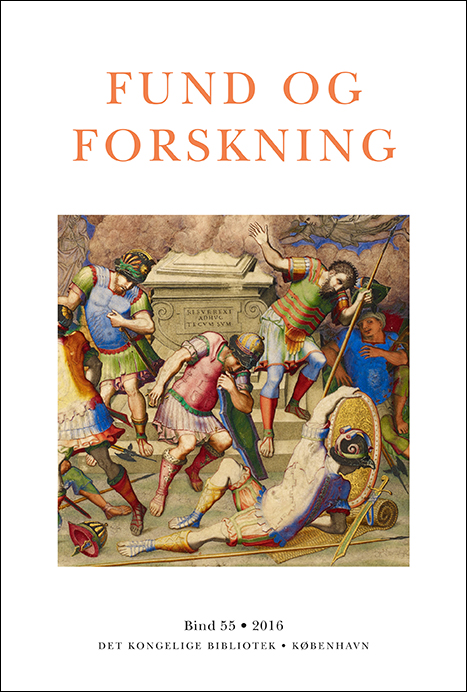Gustav Meissners rolle i den såkaldte nytårskrise 1940-41
DOI:
https://doi.org/10.7146/fof.v55i0.118923Abstract
Jesper Düring Jørgensen: The role of Gustav Meissner in the so-called New Year crisis
The article looks at the role of the German press attaché Gustav Meissner (1910–1995) during the so-called New Year crisis, which unfolded between the German occupying administration and the Danish government from December 1940 to the end of January 1941. The crisis started in autumn 1940 as a reaction to the unsuccessful monetary and customs union negotiations between Germany and Denmark, and as a result of the Danish Nazi party’s failed propaganda offensive. Another factor that contributed to exacerbating the crisis around Christmas 1940 was a protracted attack on Prime Minister Thorvald Stauning, with the intention of removing him from his post as prime minister of Denmark. In addition, conflicts of interest and expectations regarding the occupation of Denmark existed both at the German Federal Foreign Office (Auswärtiges Amt) and at the German Embassy in Copenhagen. In Copenhagen, the German ambassador Cecil von Renth-Fink tried to implement a pragmatic policy towards the Danish Government to ensure the greatest possible peace and order in the country for the safety of the German troops, and to safeguard the Danish agricultural and industrial exports to Germany, but in Berlin this policy was subtly opposed by the powerful Under Secretary Martin Luther and by his henchman at the embassy in Copenhagen, Gustav Meissner, who, partly behind Renthe-Fink’s back but with the assistance of Louis von Kohl, initiated several intrigues to topple the prime minister in Copenhagen. However, the demands to replace Stauning met with widespread opposition from the Danish government and the trade unions, and the crisis petered out. Stauning remained at his post, but party leader Hans Hedtoft and H. C. Hansen were forced out of office by the Germans.


